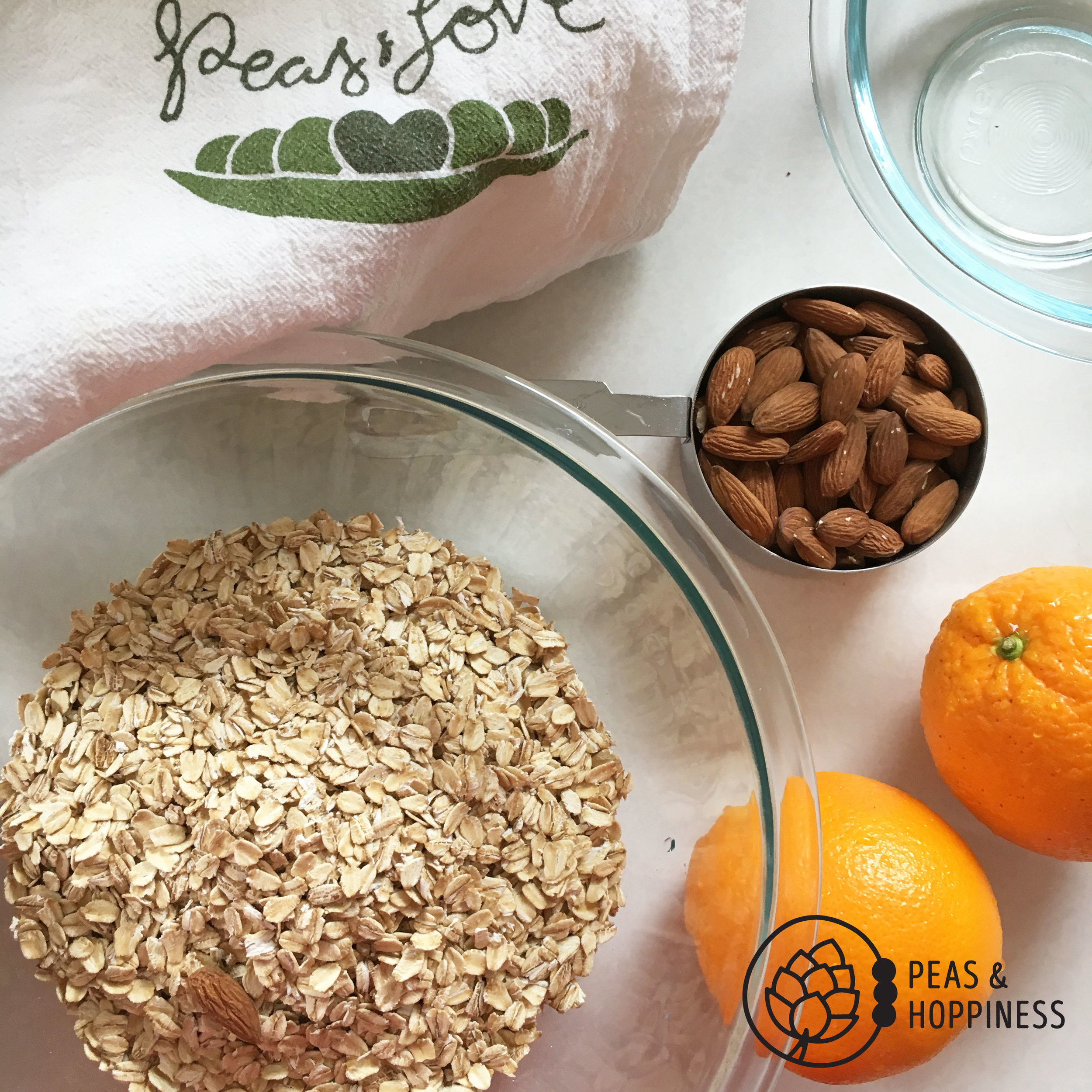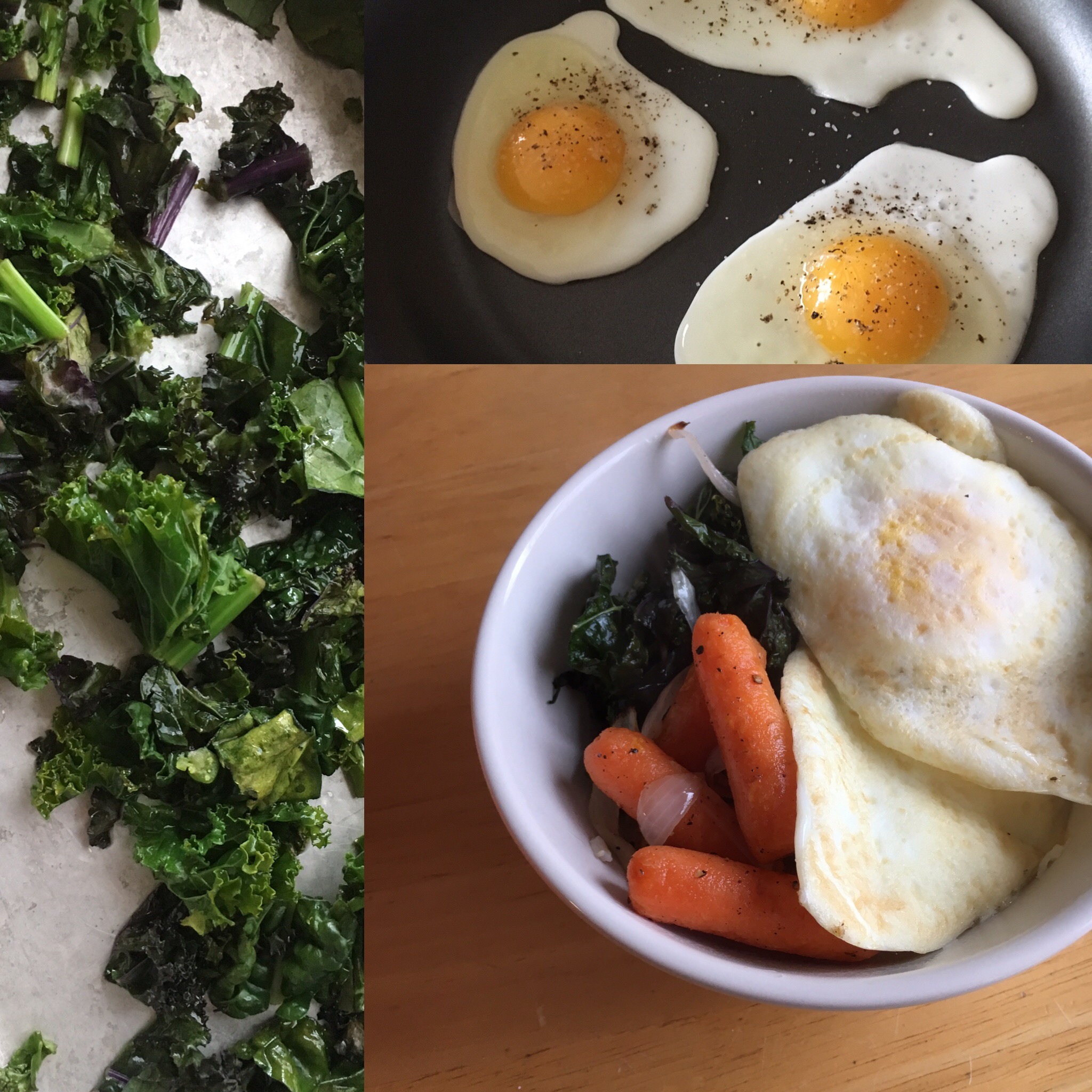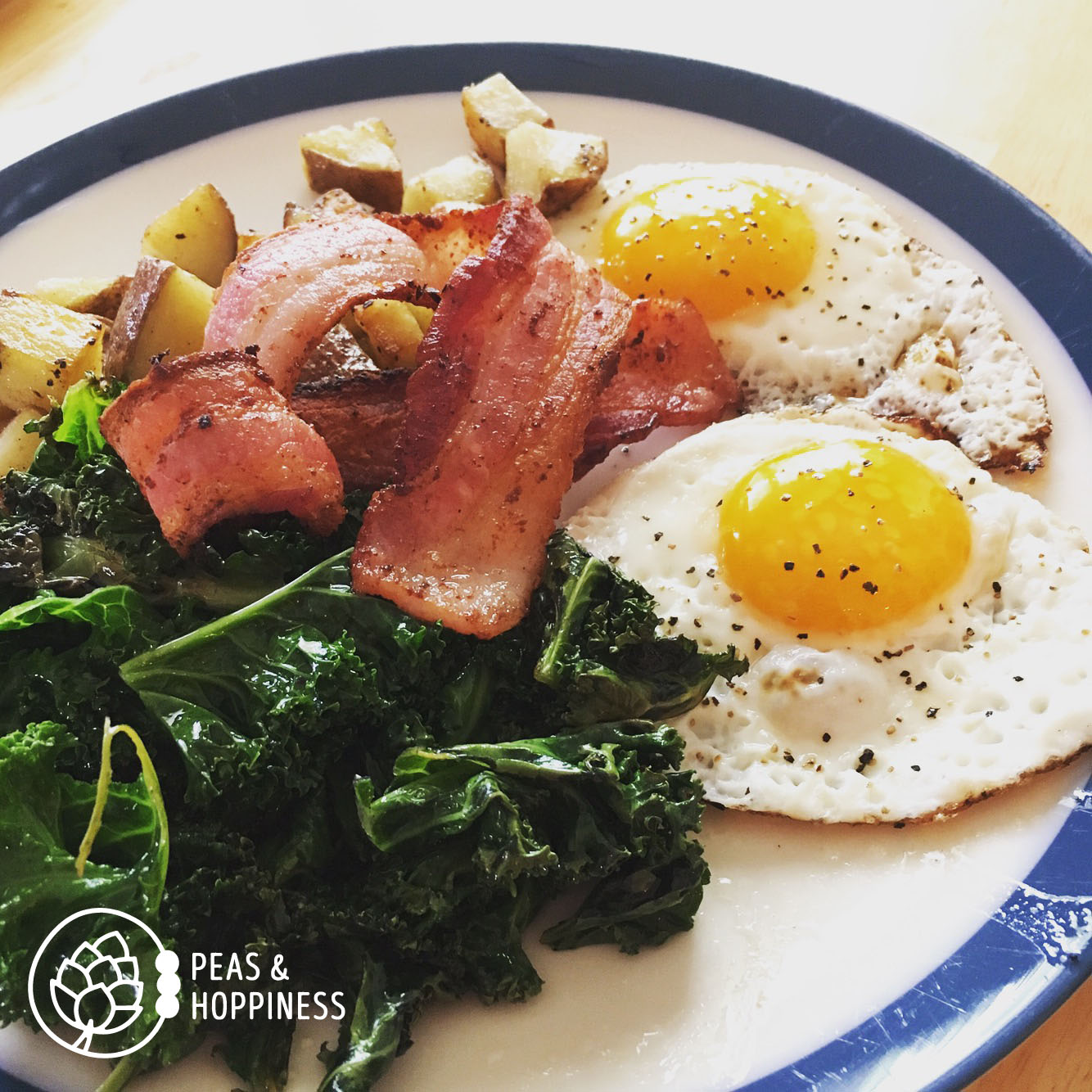I have upsetting news: there is controversy as to the importance of breakfast.

This is Eggs Benedict with lamb. Oh. Em. Gee. So many heart eyes about this breakfast.
I know, I know. Everybody “knows” that breakfast is the most important meal of the day – but recent articles and research studies have begun to cast doubt on this old adage.
Because I love breakfast so very much, this question tugs at my heartstrings. And because I believe in evidence-based nutrition, I’ve been pouring over the research in the last couple of weeks (I feel like I’m writing a second thesis, ya’ll) to see if there is data to support the role of breakfast in weight, metabolism, and other health markers.
Here’s what I came up with…
Nutrition is Nuanced
You want to know the surprising truth? Nutrition research is really confusing (see previous post if you want to know why this is).
There are only about a million things that contribute to our health. Timing of meals. Stress in life. Sleep quality. Genetic makeup. Social connections. Quality of food. Type, frequency, and amount of exercise. Hormones.
Is it any surprise that it’s hard to parse out exactly which variable might be affecting specific outcomes?
Here are some more questions that make it difficult to answer the “is breakfast important?” question:
-
What is breakfast, anyway? What time defines it? How soon should you eat it? What is breakfast vs. brunch and does it matter?
-
What is the right kind of breakfast? High fiber? Healthy fat? Should it have protein? What about carbs?
-
How much should you eat for breakfast? Should it make up a third of your calories? Half? Does a light breakfast of 100-calorie yogurt cup count?
It takes lots of time, money, and research studies to answer these questions – and we just don’t have answers yet.

The fixin’s for Honey Blossom Granola from New Food Tuesdayz. So easy, so healthy, so yummy!
Breakfast & Healthy Weight
There have been many observational studies that have found an association between eating breakfast and lower body weight. However, association does not necessarily mean causation (go read the Nutrition Research to understand the difference). In fact, when studies have been done comparing breakfast-eaters to non-breakfast-eaters the results have varied. There are a few reasons for this discrepancy:
1. Breakfast can help control hunger
One of the main mechanisms by which eating breakfast can help control weight is to help control hunger later in the day. However, in many randomized controlled trials, this effect was seen only until the next meal but was lost after that.
Personally? If I don’t eat enough calories early in the day when I’m most active, I find myself craving all kinds of junk all evening long. But if that’s NOT you, then having a high-calorie breakfast might not be the best thing for you.

Sourdough Cinnamon Rolls? Yes, please! These are a treat, though – not to be eaten every day!
The idea that breakfast curbs hunger makes sense – if you’re burning most of your calories during the day, that’s when you should be consuming your calories. Skipping breakfast and then making up for the calorie deficit at the end of the day with late-night snacks will lead you to store calories rather than burn them.
So breakfast can control hunger, but……
2. If you overeat calories, you’ll gain weight
At the end of the day, the equation for weight loss vs. weight gain is still calories in versus calories out.
Some studies show that eating breakfast increases your Resting Metabolic Rate (the amount of calories your body expends just to keep you alive) – thus increasing your overall calorie needs. However, it’s easy to out-eat this very modest metabolic boost. Thus, if you fail to curb snacking later in the day you can still gain weight.
If eating breakfast means that you don’t overeat later in the day, then it could help you lose weight. But if breakfast merely adds an extra 800 calories to your day without reducing calories somewhere else, the scale is going to tip in the less favorable direction.

A variation on Brown Rice Bowls with Roasted Broccoli and Carrots to fuel a winter hike. Spoiler alert: you don’t have to eat “breakfast food” for breakfast if you don’t want to!
3. Quality matters
Sorry, ya’ll, but donuts still aren’t part of a balanced breakfast (ahem, those are considered soul food and should be eaten on special occasions!).
The problem is researchers aren’t quite sure what constitutes quality. Some research indicates high-fiber cereals may be best while others focus on protein. Still other studies advocate for high protein and high fat.
Breakfast, like snacking, can be a great opportunity to improve the overall quality of your diet. Here are a few easy ideas to include foods that your body will love:
-
Healthy Fats: nuts (walnuts, almonds, pecans, etc.), nut butter (peanut butter, almond butter, sunbutter), olive oil
-
Healthy Proteins: eggs (hard-boiled, scrambled, or lightly fried), low-fat meats, low-fat cheese
-
Quality carbs: fruit (whole, sliced, or in smoothies), beans (especially with a Mexican omelet!), sweet potatoes (in a hash? YUM!), oats, whole grain bread, granola
Other potential Health Outcomes
Even if breakfast doesn’t lead to massive weight loss, is it good for anything else? The short answer is: possibly. Don’t you love the grey area of good science? Here are a couple of examples.
Blood Glucose Control: For my patients with diabetes, breakfast is usually an important part of the day – especially for those taking certain medications. It breaks their overnight fast and gives them one more meal to spread out carbs. Quality of breakfast really matters in blood sugar control; in this study, a breakfast rich in high-quality carbs (lots of fiber, not processed) produced more stable blood sugar levels during the morning.

Oh kale yeah I love kale for breakfast! Throwback to my very first blog post with this brunch that I used to re-fuel after a long run.
Heart Health: While this study found that skipping breakfast actually leads to weight loss, the researchers found that breakfast may help reduce cholesterol. Of course, whether or not breakfast improves your cardiovascular health is largely tied to the health of your breakfast. Eating more bacon probably isn’t going to lower that lousy LDL cholesterol…
The Bottom Line: Breakfast is the Most Important Meal of the Day for Some People but not for Others
Epidemiologic research tells us people who have overall healthy lifestyle habits, weight, and good health are more likely to include a healthy breakfast as part of their day. However, if you have found a healthy life balance and great health outcomes without breakfast, it may not be that important for you.
If you’re struggling with hunger and cravings, if your blood sugar fluctuates too much during the day, or if you’ve been in a constant battle to lose weight (especially because you’re so hungry at dinner), you might try adding in a quality breakfast.
Breakfast alone isn’t a magic bullet, but you need to set yourself up for success in making healthy choices throughout the day. For me and many others, this starts with fueling my body with quality food when I first wake up in the morning.
Wherever you fall on the Breakfast Importance Scale, I hope that you enjoy your food, enjoy life, and enjoy good health.
With love from Peas and Hoppiness.
3 thoughts on “Breakfast is the Best… But is it the Most Important?”
Love it! Thanks for doing all this hard work and research so I don’t have to! I ❤️ Breakfast 🍳!
Hi Ann, just found out your blog post. I’m a registered nutritionist (graduated from accredited universities, that’s what we call ourselves in Malaysia). I love your school of thought, in which you emphasize no one-size-fits-all solution in the world of nutrition. Just want to let you know that I like reading your blog very much, keep writing great content like this!
Thank you so much for your comment! I’m so glad you find the content helpful. All the best to you and your work in nutrition!